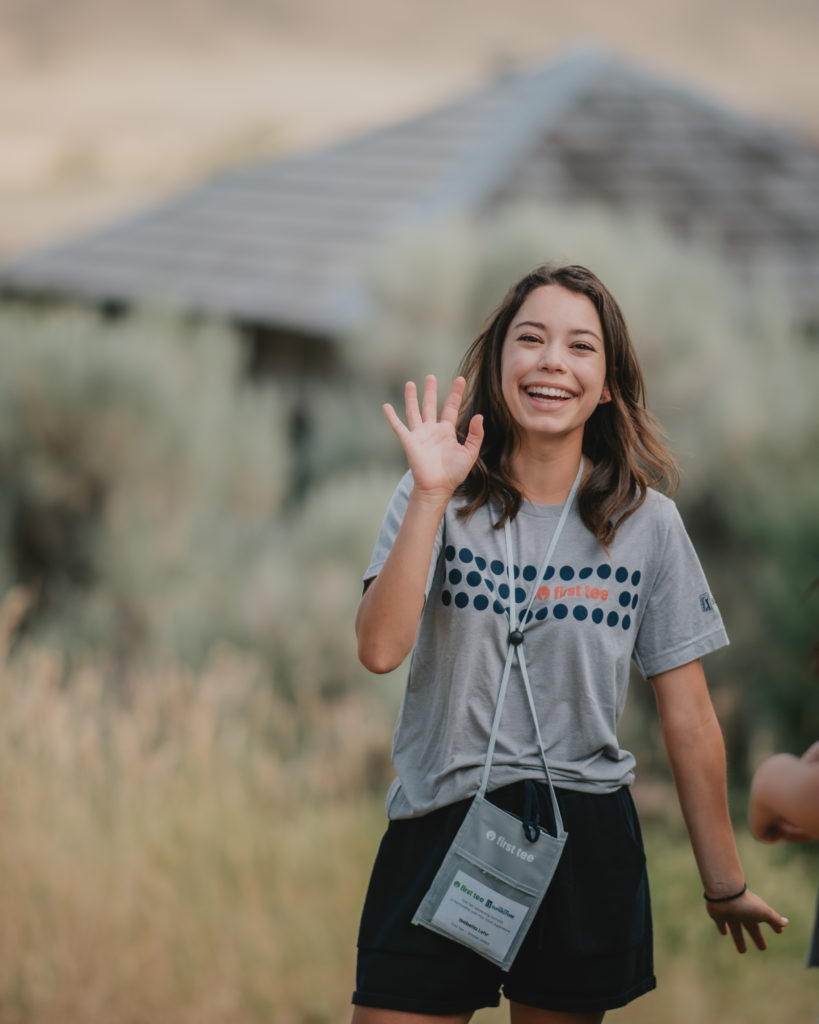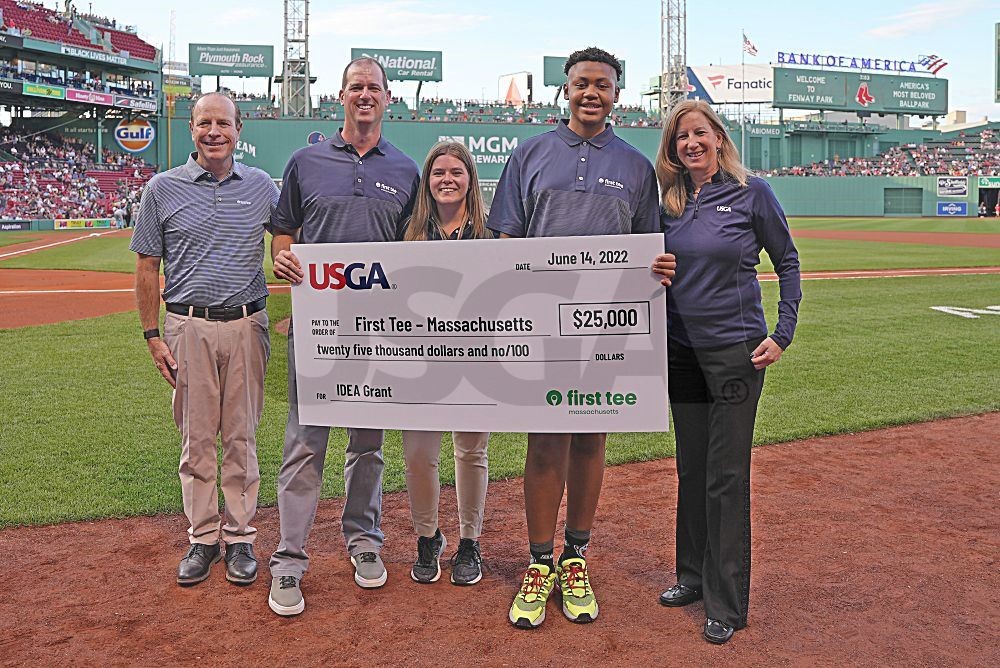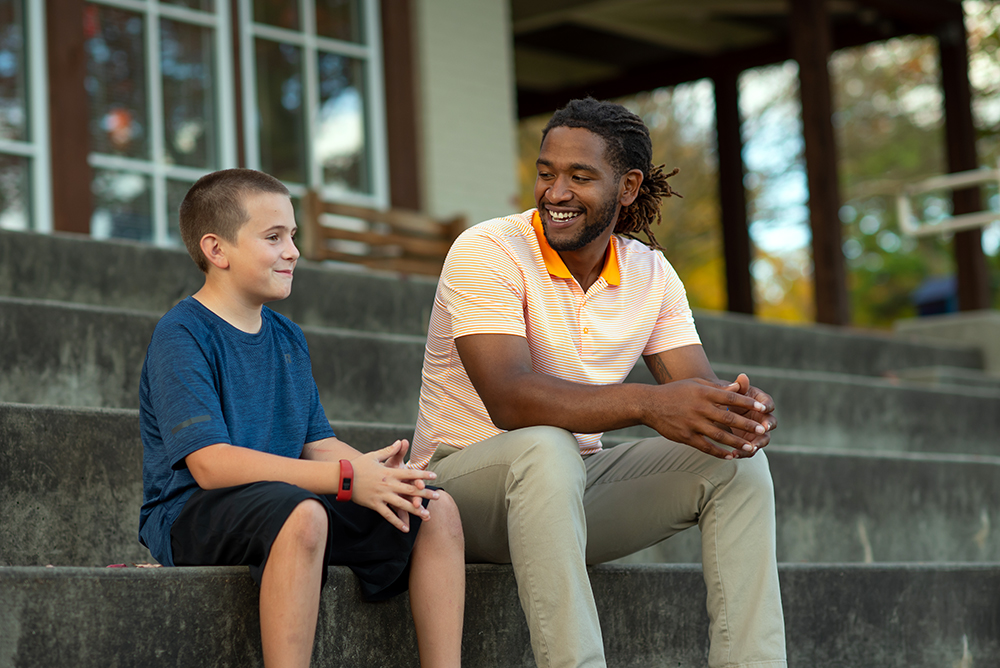PONTE VEDRA BEACH, FL. (September 12, 2022) – First Tee participants from Minnesota, Massachusetts, San Francisco and Orange County, Calif. have each been awarded scholarships and selection in to the First Tee College Scholarship Program. The teens were selected following their participation in the First Tee Leadership Series and Summit in partnership with PGA TOUR Superstore based on their intentional and innovative commitment to personal growth and development as leaders throughout the course of the program.
First Tee and PGA TOUR Superstore congratulate:
- Gabriella Mercado from First Tee – Orange County: Gabriella is a 16-year-old high school junior from Placentia, Calif. She’s been involved with First Tee for seven years. She holds a 4.0 GPA and has aspirations of playing college golf and then becoming a sports lawyer. Gabriella enjoys community service and in her first two years of high school accumulated more than 225 hours.
- Jaylyn Remolona from First Tee – San Francisco: Jaylynis a 15-year-old high school junior from San Francisco. Jaylyn attends Mercy High School in Burlingame has been involved with First Tee for seven years. She holds a 3.65 and outside of school her two hobbies are golf and singing.
- Kyzar Joshi from First Tee — Massachusetts: Kyzar is 17-year-old high school senior at Ashland High School in Ashland, Mass.He has been involved with First Tee for more than 10 years. He holds a 4.12 GPA and his career aspirations include playing college golf and majoring in finance or economics in college. Kyzar serves as his class treasurer, and helped lead the Ashland High School golf team to the state section tournament. Kyzar is in the process of completing the ACE level of the First Tee Curriculum.
- Saloni Somia from First Tee – Minnesota: Saloni, from Plymouth, Minn.,is a17-year-old high school senior at Minnetonka High School. She has been involved with First Tee for four years. She holds a 4.0 GPA and serves as the President of her school’s National Honor Society, Captain of the Minnetonka Girls Golf Team, Founder and President of Everyone Eats (an organization that provides homeless youth allergy friendly foods) and co-founded a teen-led YouTube channel that gives good allergy advice to teens.
As First Tee Scholars, the teens will receive support throughout their post-graduate careers. The need and merit-based program provides scholarships up to $5,000 per year, renewable for up to four years of college admission. In addition, each scholar is paired with a dedicated, trained adult mentor who will help encourage and guide them throughout the college experience, including virtual and in person meetups. The program also provides professional development workshops held in person throughout the year.
“We are very proud of these four deserving teens from across the country,” said Greg McLaughlin, First Tee CEO. “They each showed dedication and impressive character traits throughout the Leadership Series and Summit. They are leaders in their schools, at home and at their First Tee chapters. Through the First Tee College Scholarship Program, we will continue to support them in their personal and professional development and empower them to hone their leadership skills as they pursue their careers. We’re thankful for partners like PGA TOUR Superstore who support these game changing initiatives.”
The four teens were selected from the more than 250 participants who attended the Leadership Series and Summit. Boasting an average GPA of 3.9 the teens meet the College Scholarship Program eligibility requirements which are based on academic performance, length and involvement in First Tee programs, financial need and commitment to volunteerism.
First Tee College Scholarship Program is made possible by donors and corporate partners who stand behind the program and First Tee’s mission. For more than a decade, PGA TOUR Superstore and PGA TOUR Superstore Chairman Arthur M. Blank have championed First Tee’s mission through charitable and in-kind donations across the country. In September 2020, PGA TOUR Superstore announced a new grant that will help First Tee reach more youth across the U.S. and strengthen its curriculum for teenage participants, including the development of the Leadership Series and Summit.
“We are committed to being a positive influence in our communities and truly believe in the positive impact sports has in developing and supporting youth,” said Dick Sullivan, President & CEO, PGA TOUR Superstore. “We are proud to partner with the First Tee to empower young people with values-based leadership skills that will help them succeed throughout the course of their life. Congratulations Gabriella, Jaylyn, Kyzar and Saloni.”
Photos and broll of the Scholars is available here.




 We believe character is learned, cultivated, and shaped by our experiences. At First Tee, we focus on taking the valuable lessons learned on the course, and applying them to everyday lives at school, at home, and in our communities. We believe that part of being a good leader and becoming a game-changer involves showing up for others whenever possible. Here are six ways that you can encourage your child to show up and help others:
We believe character is learned, cultivated, and shaped by our experiences. At First Tee, we focus on taking the valuable lessons learned on the course, and applying them to everyday lives at school, at home, and in our communities. We believe that part of being a good leader and becoming a game-changer involves showing up for others whenever possible. Here are six ways that you can encourage your child to show up and help others: